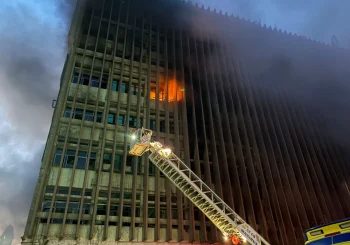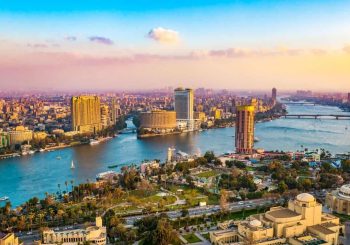As hundreds of tourists gathered at Aswan’s Abu Simbel Temple in Upper Egypt Monday to watch a unique solar event, a group of Nubians staged a protest opposing a parliamentary decree they claim deprives them of the right to return to their ancestral lands on the Nile banks, according to state-owned Al-Ahram.
The decision, referred to as decree 444, was originally issued by President Abdel Fattah al-Sisi in 2014 and approved by the newly elected parliament last month. The decree designates a large stretch of land adjacent to the border with Sudan as a new restricted military zone that should not be populated.
“Around 50 to 70 people rallied for the cause of the Nubians, and security forces did not intervene against us,” head of the General Nubian Union Muhammed Azmy said, according to Daily News Egypt.
Azmy also claimed the decree destroys the Nubian people’s long-held dream of returning to their historic homelands, which they were forcibly displaced from by the state in the 1960s in order to make way for the construction of the Aswan High Dam.
He added that the decision, which designates 18 villages as “border regions,” conflicts with the constitution.
Article 236 of Egypt’s constitution, which was enacted in 2014, states: “The state works on developing and implementing projects to bring back the residents of Nubia to their original areas and develop them within 10 years in the manner organized by law.”
In a recent interview with online magazine Al-Monitor, Egypt’s sole Nubian member of parliament Yassine Abdel Sabour also highlighted the constitutional right of the Nubian people to return to their homelands.
“According to the constitution, Nubians have the right to return to the banks of the Aswan High Dam, and the parliament ought to respond to their demand. Should the parliament refrain from doing so, it becomes unconstitutional because it is not applying the constitution. The state ought to fulfill this demand. We believe the time is very appropriate for our historical demand to be fulfilled. It would be unjust to us if the state denied us our right,” Abdel Sabour said.
He also underscored the marginalized state the Nubian people find themselves in in Egypt. Problems facing the Nubians, according to Abdel Sabour, include the sharp deterioration of health services in addition to a lack of functioning sewage networks.
But perhaps the historically most important issue has to do with the displacement of the Nubians from their ancestral lands.
“For 52 years, Nubians have been hoping to return to the banks of the Aswan High Dam and to receive compensation, as 8,000 Nubian families were forced to leave their homes. Affected Nubians were promised to receive a house and 2 feddan [2.1 acres] of land in compensation, but this never happened under the pretext that the state’s budget did not allow it,” said Abdel Sabour, adding that Egypt’s public education system has for too long ignored the history of the Nubian nation which has resulted in the low awareness of the Nubian question among regular Egyptians.
Aswan’s General Nubian Union said it chose to hold Monday’s protest on that specific day in order to attract worldwide attention to their “historical right to the property of the land”. The area that now is designated a restricted military zone is exactly the same area that the Nubians have claimed their right to for decades, the union claims.
Azmy claims that the state never intended to return the land to its original owners, as it is rich in agricultural resources and gold. He also said that he has been threatened by Egypt’s security apparatus to keep quiet on the issue in order not to scare away tourists from the region.






Comments (0)